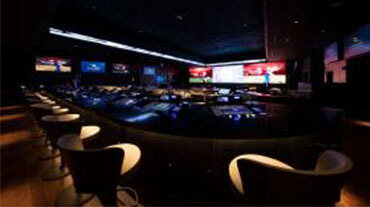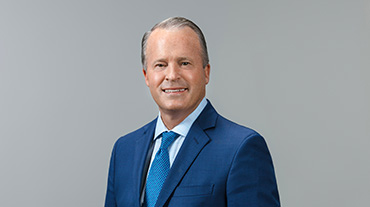Churchill Downs Awarded to Business Committee for the Arts 10 for Its Support of the Arts Community
Art InSpires
Originally published in the Spring 2019 issue of Churchill Downs Magazine
Churchill Downs has earned several instinctive and automatic associations through the years. Historically, one thinks of horse racing, hats, mint juleps and roses in connection with the legacy of the Kentucky Derby. As a product of the evolution of Churchill Downs Incorporated, those connotations have expanded to include the best racing, gaming and online wagering experiences in the United States. And for those racing fans who have attended Opening Night at Churchill Downs Racetrack over the past three years, there is growing anticipation, expectation and appetite for vibrant entertainment offerings made possible through local artists and a burgeoning partnership with Louisville’s Fund for the Arts.
While Churchill Downs as a destination remains on the bucket lists of many hoping to catch a glimpse of that iconography linked to the first Saturday in May, it was the company’s investment in the arts on the Saturday before the first Saturday in May that landed Churchill Downs on a list of its own – the prestigious BCA 10 (Business Committee for the Arts), an award that recognizes the best businesses partnering with the arts in America.
Each year, Americans for the Arts recognizes 10 businesses for their exceptional involvement with the arts that enriches the workplace, education and the community. According to Robert Lynch, president and CEO of Americans for the Arts, “These companies set the standard of excellence and serve as role models for others to follow.”
In October 2018, Churchill Downs was honored with the distinction alongside nine other businesses that have impressively integrated the arts into their corporate culture in creative ways. The black-tie dinner, held at the
Central Park Boathouse in New York City, also served to recognize Fifth Third Bank, Fosun, Phillips 66, The Standard, Tierney, UMB Financial Corporation, VF Corporation, West Bend Mutual Insurance Company and Zions Bank.
Americans for the Arts is the nation’s leading nonprofit organization for advancing the arts and arts education in America, and the Business Committee for the Arts, founded by David Rockefeller in 1967, ensures that the arts flourish in America by encouraging, inspiring and stimulating business support to the arts in the workplace, in education and in the community.
Lynch emphasizes that publicly identifying and honoring those businesses year to year is an imperative step in achieving the goals set forth by Rockefeller because, he explains, “They exhibit an extraordinary example for other businesses to try to achieve. Our honorees provide the arts with significant financial and in-kind support, and they incorporate meaningful arts-related programs into their employee, customer and community relations activities. We are grateful to honor these businesses and individuals for their exceptional involvement in ensuring the arts thrive in their communities.”
As for Churchill Downs, commitment to the arts extends beyond the recognition of BCA 10 and even beyond the financial and marketing success of Opening Night, which has come to be known as one of the greatest celebrations of the arts in the region and has increased ticketed attendance for that evening by almost 25 percent.
Much like how the Kentucky Derby brings together and inspires the collective community, the arts indiscriminately build bridges and connect us to one another. Churchill Downs prioritizes supporting the arts because of the belief that immersion in the arts and opportunities for arts education are primary ways to achieve prosperity for the city and state. One of the main avenues through which the company commits that support is as presenting sponsor of the Cultural Pass, a program that provides free summer access to approximately 50 venues and expands access to summer learning opportunities for underserved populations. Through this program, over 31,000 people a year have gained access to cultural experiences.
Fund for the Arts President and CEO Christen Boone explains, “The Cultural Pass is a passport for Greater Louisville kids and families to unlock boundless creativity. We are deeply grateful to Churchill Downs and partners who make this one-of-a-kind initiative possible. This is a critical investment for our region that allows kids to learn, play and grow all summer long.”
Achieving the vision of the Cultural Pass is made possible through Churchill Downs’ partnership with Fund for the Arts and a leadership committee that includes Louisville Metro Government, Louisville Free Public Library and the Arts & Culture Alliance. Together, they hope to establish a lifelong relationship between Louisville’s children and art and cultural institutions as well as work to address barriers that may prohibit children from accessing the city’s art and cultural venues.
Of the collaborative investment, Churchill Downs Incorporated CEO Bill Carstanjen reflects, “Our community is fortunate to have one of the most unique initiatives across the country to fight summer learning loss. Churchill Downs is proud to support arts and cultural experiences that make our city stronger.”
As Churchill Downs prepares to kick off Derby Week for 2019, Opening Night will continue to set the standard for the excitement to follow while laying the groundwork for the immersive artistic and cultural experience that horse racing can be. By way of hosting Awards in the Arts as part of the Opening Night festivities – a collaboration that started in 2016 between Fund for the Arts and the Jennifer Lawrence Foundation and has since generated over $1 million – Churchill Downs gets to play a significant role in honoring the organizations and individuals that make Louisville’s arts community extraordinary.
Through this effort, Churchill Downs Racetrack becomes a canvas on which local artists and emerging talent can create masterpieces. Guests and racing fans will once again be delighted at every turn by over 200 artists, performers, craftspeople, installations and cultural groups for a fresh and diverse evening of entertainment. The success of this partnership has inspired Churchill Downs to incorporate local arts organizations into their programming whenever and however they can, captivating fans to return throughout the spring and fall meets with the same enthusiasm as Opening Night and Derby Week.
Louisville will continue to grow both culturally and economically if businesses like Churchill Downs commit to meaningful investment in the arts. Artists fuel the soul of the city and, in turn, help recruit tourists, residents and corporate talent. Carstanjen affirms that as the company grows, so does his commitment to investing in the growth of their headquarters’ home: “Louisville has long been aligned with horse racing, hospitality, bourbon and fine cuisine, all of which are celebrated at our flagship event, the Kentucky Derby. Our city’s vibrant arts community should be an attraction that makes Louisville a destination. By turning Churchill Downs Racetrack into a stage upon which our local artists can perform, we provide a transformative experience to horse racing fans and extend the energy and impact of the Kentucky Derby beyond the first Saturday in May.”
About Churchill Downs Incorporated
Churchill Downs Incorporated is an industry-leading racing, online wagering and gaming entertainment company anchored by our iconic flagship event – The Kentucky Derby. We own and operate Derby City Gaming, a historical racing machine facility in Louisville, Kentucky. We also own and operate the largest online horse racing wagering platform in the U.S., TwinSpires.com, and we operate sports betting and iGaming through our BetAmerica platform in multiple states. We are also a leader in brick-and-mortar casino gaming with approximately 11,000 slot machines and video lottery terminals and 200 table games in eight states. Additional information about CDI can be found online at www.churchilldownsincorporated.com.
Information set forth in this news release contains various “forward-looking statements” within the meaning of the Private Securities Litigation Reform Act of 1995 (the “Act”), which provides certain “safe harbor” provisions. All forward-looking statements made in this news release are made pursuant to the Act. Forward-looking statements are typically identified by the use of terms such as “anticipate,” “believe,” “could,” “estimate,” “expect,” “intend,” “may,” “might,” “plan,” “predict,” “project,” “seek,” “should,” “will,” and similar words, although some forward-looking statements are expressed differently.
Although we believe that the expectations reflected in such forward-looking statements are reasonable, we can give no assurance that such expectations will prove to be correct. Important factors that could cause actual results to differ materially from expectations include the following: the effect of economic conditions on our consumers’ confidence and discretionary spending or our access to credit; additional or increased taxes and fees; public perceptions or lack of confidence in the integrity of our business or any deterioration in our reputation; loss of key or highly skilled personnel; restrictions in our debt facilities limiting our flexibility to operate our business; general risks related to real estate ownership, including fluctuations in market values and environmental regulations; catastrophic events and system failures disrupting our operations; online security risk, including cyber-security breaches; inability to recover under our insurance policies for damages sustained at our properties in the event of inclement weather and casualty events; increases in insurance costs and inability to obtain similar insurance coverage in the future; inability to identify and complete acquisition, expansion or divestiture projects, on time, on budget or as planned; difficulty in integrating recent or future acquisitions into our operations; costs and uncertainties relating to the development of new venues and expansion of existing facilities; risks associated with equity investments, strategic alliances and other third-party agreements; inability to respond to rapid technological changes in a timely manner; inadvertent infringement of the intellectual property of others; inability to protect our own intellectual property rights; payment-related risks, such as risk associated with fraudulent credit card and debit card use; compliance with the Foreign Corrupt Practices Act or applicable money-laundering regulations; risks related to pending or future legal proceedings and other actions; inability to negotiate agreements with industry constituents, including horsemen and other racetracks; work stoppages and labor issues; changes in consumer preferences with respect to Churchill Downs Racetrack and the Kentucky Derby; personal injury litigation related to injuries occurring at our racetracks; weather and other conditions affecting our ability to conduct live racing; the occurrence of extraordinary events, such as terrorist attacks and public health threats, including the ongoing impact of the novel coronavirus (COVID-19 virus); changes in the regulatory environment of our racing operations; increased competition in the horseracing business; difficulty in attracting a sufficient number of horses and trainers for full field horseraces; our inability to utilize and provide totalizator services; changes in regulatory environment of our online horseracing business; number of people wagering on live horse races; increase in competition in our online horseracing; uncertainty and changes in the legal landscape relating to our online wagering business; continued legalization of online sports betting and iGaming in the United States and our ability to predict and capitalize on any such legalization; inability to expand our sports betting operations and effectively compete; failure to manage risks associated with sports betting; failure to comply with laws requiring us to block access to certain individuals could result in penalties or impairment with respect to our mobile and online wagering products; increased competition in our casino business; changes in regulatory environment of our casino business; and concentration and evolution of slot machine manufacturing and other technology conditions that could impose additional costs; and inability to collect gaming receivables from the customers to whom we extend credit.
Press Contacts
Nick Zangari
Vice President, Treasury, Investor
Relations & Risk Management
Phone: (502) 394-1157
Email: [email protected]



